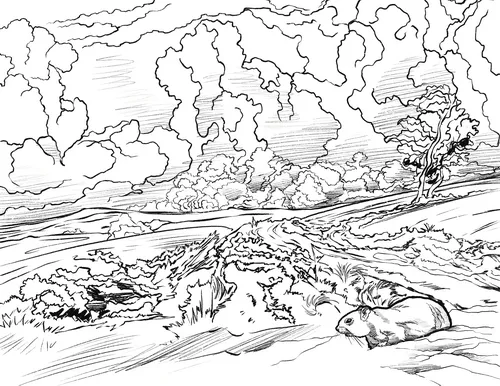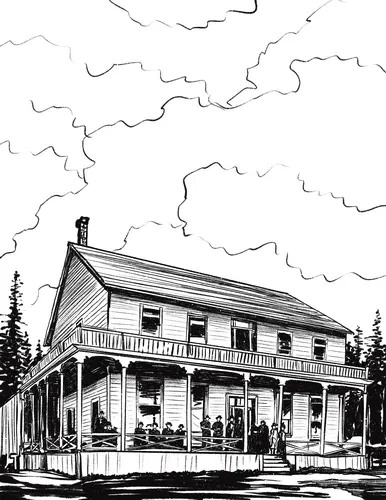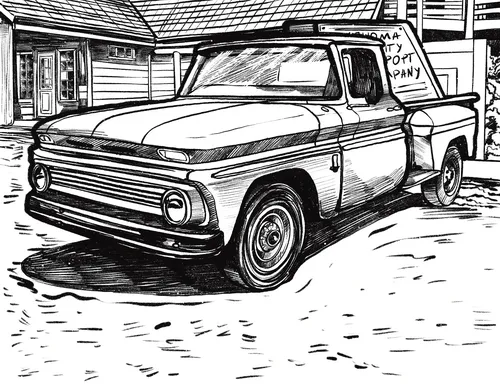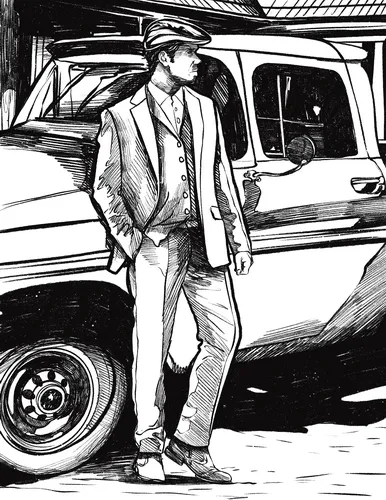
eBook - ePub
The Grapes of Wrath. Featuring new 2021. Illustrations
John Steinbeck, D. Fisher.
This is a test
Share book
- 757 pages
- English
- ePUB (mobile friendly)
- Available on iOS & Android
eBook - ePub
The Grapes of Wrath. Featuring new 2021. Illustrations
John Steinbeck, D. Fisher.
Book details
Book preview
Table of contents
Citations
About This Book
John Ernst Steinbeck Jr. has been called "a giant of American letters".His magnum opus 'The Grapes of Wrath', which epitomises the harrowing events of the Clutch Plague era, stirred widespread sympathy for the plight of migrant workers.Many of Steinbeck's works are set in the Salinas Valley of his childhood and they frequently explore themes of fate and the injustices suffered by their everyman protagonists.Featuring new original Illustrations by D. Fisher.
Frequently asked questions
How do I cancel my subscription?
Can/how do I download books?
At the moment all of our mobile-responsive ePub books are available to download via the app. Most of our PDFs are also available to download and we're working on making the final remaining ones downloadable now. Learn more here.
What is the difference between the pricing plans?
Both plans give you full access to the library and all of Perlego’s features. The only differences are the price and subscription period: With the annual plan you’ll save around 30% compared to 12 months on the monthly plan.
What is Perlego?
We are an online textbook subscription service, where you can get access to an entire online library for less than the price of a single book per month. With over 1 million books across 1000+ topics, we’ve got you covered! Learn more here.
Do you support text-to-speech?
Look out for the read-aloud symbol on your next book to see if you can listen to it. The read-aloud tool reads text aloud for you, highlighting the text as it is being read. You can pause it, speed it up and slow it down. Learn more here.
Is The Grapes of Wrath. Featuring new 2021. Illustrations an online PDF/ePUB?
Yes, you can access The Grapes of Wrath. Featuring new 2021. Illustrations by John Steinbeck, D. Fisher. in PDF and/or ePUB format, as well as other popular books in Literature & Classics. We have over one million books available in our catalogue for you to explore.
Information
CHAPTER 1
TO THE RED country and part of the gray country of Oklahoma, the last rains came gently, and they did not cut the scarred earth. The plows crossed and recrossed the rivulet marks. The last rains lifted the corn quickly and scattered weed colonies and grass along the sides of the roads so that the gray country and the dark red country began to disappear under a green cover. In the last part of May the sky grew pale and the clouds that had hung in high puffs for so long in the spring were dissipated. The sun flared down on the growing corn day after day until a line of brown spread along the edge of each green bayonet. The clouds appeared, and went away, and in a while they did not try any more. The weeds grew darker green to protect themselves, and they did not spread any more. The surface of the earth crusted, a thin hard crust, and as the sky became pale, so the earth became pale, pink in the red country and white in the gray country.
In the water-cut gullies the earth dusted down in dry little streams. Gophers and ant lions started small avalanches. And as the sharp sun struck day after day, the leaves of the young corn became less stiff and erect; they bent in a curve at first, and then, as the central ribs of strength grew weak, each leaf tilted downward. Then it was June, and the sun shone more fiercely. The brown lines on the corn leaves widened and moved in on the central ribs. The weeds frayed and edged back toward their roots. The air was thin and the sky more pale; and every day the earth paled.

In the roads where the teams moved, where the wheels milled the ground and the hooves of the horses beat the ground, the dirt crust broke and the dust formed. Every moving thing lifted the dust into the air: a walking man lifted a thin layer as high as his waist, and a wagon lifted the dust as high as the fence tops, and an automobile boiled a cloud behind it. The dust was long in settling back again.
When June was half gone, the big clouds moved up out of Texas and the Gulf, high heavy clouds, rain-heads. The men in the fields looked up at the clouds and sniffed at them and held wet fingers up to sense the wind. And the horses were nervous while the clouds were up. The rain-heads dropped a little spattering and hurried on to some other country. Behind them the sky was pale again and the sun flared. In the dust there were drop craters where the rain had fallen, and there were clean splashes on the corn, and that was all.
A gentle wind followed the rain clouds, driving them on northward, a wind that softly clashed the drying corn. A day went by and the wind increased, steady, unbroken by gusts. The dust from the roads fluffed up and spread out and fell on the weeds beside the fields, and fell into the fields a little way. Now the wind grew strong and hard and it worked at the rain crust in the corn fields. Little by little the sky was darkened by the mixing dust, and the wind felt over the earth, loosened the dust, and carried it away. The wind grew stronger. The rain crust broke and the dust lifted up out of the fields and drove gray plumes into the air like sluggish smoke. The corn threshed the wind and made a dry, rushing sound. The finest dust did not settle back to earth now, but disappeared into the darkening sky.
The wind grew stronger, whisked under stones, carried up straws and old leaves, and even little clods, marking its course as it sailed across the fields. The air and the sky darkened and through them the sun shone redly, and there was a raw sting in the air. During a night the wind raced faster over the land, dug cunningly among the rootlets of the corn, and the corn fought the wind with its weakened leaves until the roots were freed by the prying wind and then each stalk settled wearily sideways toward the earth and pointed the direction of the wind.
The dawn came, but no day. In the gray sky a red sun appeared, a dim red circle that gave a little light, like dusk; and as that day advanced, the dusk slipped back toward darkness, and the wind cried and whimpered over the fallen corn.
Men and women huddled in their houses, and they tied handkerchiefs over their noses when they went out, and wore goggles to protect their eyes.
When the night came again it was black night, for the stars could not pierce the dust to get down, and the window lights could not even spread beyond their own yards. Now the dust was evenly mixed with the air, an emulsion of dust and air. Houses were shut tight, and cloth wedged around doors and windows, but the dust came in so thinly that it could not be seen in the air, and it settled like pollen on the chairs and tables, on the dishes. The people brushed it from their shoulders. Little lines of dust lay at the door sills.
In the middle of that night the wind passed on and left the land quiet. The dust-filled air muffled sound more completely than fog does. The people, lying in their beds, heard the wind stop. They awakened when the rushing wind was gone. They lay quietly and listened deep into the stillness. Then the roosters crowed, and their voices were muffled, and the people stirred restlessly in their beds and wanted the morning. They knew it would take a long time for the dust to settle out of the air. In the morning the dust hung like fog, and the sun was as red as ripe new blood. All day the dust sifted down from the sky, and the next day it sifted down. An even blanket covered the earth. It settled on the corn, piled up on the tops of the fence posts, piled up on the wires; it settled on roofs, blanketed the weeds and trees.
The people came out of their houses and smelled the hot stinging air and covered their noses from it. And the children came out of the houses, but they did not run or shout as they would have done after a rain. Men stood by their fences and looked at the ruined corn, drying fast now, only a little green showing through the film of dust. The men were silent and they did not move often. And the women came out of the houses to stand beside their men — to feel whether this time the men would break. The women studied the men’s faces secretly, for the corn could go, as long as something else remained. The children stood near by, drawing figures in the dust with bare toes, and the children sent exploring senses out to see whether men and women would break. The children peeked at the faces of the men and women, and then drew careful lines in the dust with their toes. Horses came to the watering troughs and nuzzled the water to clear the surface dust. After a while the faces of the watching men lost their bemused perplexity and became hard and angry and resistant. Then the women knew that they were safe and that there was no break. Then they asked, What’ll we do? And the men replied, I don’t know. But it was all right. The women knew it was all right, and the watching children knew it was all right. Women and children knew deep in themselves that no misfortune was too great to bear if their men were whole. The women went into the houses to their work, and the children began to play, but cautiously at first. As the day went forward the sun became less red. It flared down on the dust-blanketed land. The men sat in the doorways of their houses; their hands were busy with sticks and little rocks. The men sat still — thinking — figuring.

CHAPTER 2
A HUGE RED transport truck stood in front of the little roadside restaurant. The vertical exhaust pipe muttered softly, and an almost invisible haze of steel-blue smoke hovered over its end. It was a new truck, shining red, and in twelve-inch letters on its sides — OKLAHOMA CITY TRANSPORT COMPANY. Its double tires were new, and a brass padlock stood straight out from the hasp on the big back doors. Inside the screened restaurant a radio played, quiet dance music turned low the way it is when no one is listening. A small outlet fan turned silently in its circular hole over the entrance, and flies buzzed excitedly about the doors and windows, butting the screens. Inside, one man, the truck driver, sat on a stool and rested his elbows on the counter and looked over his coffee at the lean and lonely waitress. He talked the smart listless language of the roadsides to her. “I seen him about three months ago. He had a operation. Cut somepin out. I forget what.” And she— “Doesn’t seem no longer ago than a week I seen him myself. Looked fine then. He’s a nice sort of a guy when he ain’t stinko.” Now and then the flies roared softly at the screen door. The coffee machine spurted steam, and the waitress, without looking, reached behind her and shut it off.

Outside, a man walking along the edge of the highway crossed over and approached the truck. He walked slowly to the front of it, put his hand on the shiny fender, and looked at the No Riders sticker on the windshield. For a moment he was about to walk on down the road, but instead he sat on the running board on the side away from the restaurant. He was not over thirty. His eyes were very dark brown and there was a hint of brown pigment in his eyeballs. His cheek bones were high and wide, and strong deep lines cut down his cheeks, in curves beside his mouth. His upper lip was long, and since his teeth protruded, the lips stretched to cover them, for this man kept his lips closed. His hands were hard, with broad fingers and nails as thick and ridged as little clam shells. The space between thumb and forefinger and the hams of his hands were shiny with callus.
The man’s clothes were new — all of them, cheap and new. His gray cap was so new that the visor was still stiff and the button still on, not shapeless and bulged as it would be when it had served for a while all the various purposes of a cap — carrying sack, towel, handkerchief. His suit was of cheap gray hardcloth and so new that there were creases in the trousers. His blue chambray shirt was stiff and smooth with filler. The coat was too big, the trousers too short, for he was a tall man. The coat shoulder peaks hung down on his arms, and even then the sleeves were too short and the front of the coat flapped loosely over his stomach. He wore a pair of new tan shoes of the kind called “army last,” hob-nailed and with half-circles like horseshoes to protect the edges of the heels from wear. This man sat on the running board and took off his cap and mopped his face with it. Then he put on the cap, and by pulling started the future ruin of the visor. His feet caught his attention. He leaned down and loosened the shoelaces, and did not tie the ends again. Over his head the exhaust of the Diesel engine whispered in quick puffs of blue smoke.

The music stopped in the restaurant and a man’s voice spoke from the loudspeaker, but the waitress did not turn him off, for she didn’t know the music had stopped. Her exploring fingers had found a lump under her ear. She was trying to see it in a mirror behind the counter without letting the truck driver know, and so she pretended to push a bit of hair to neatness. The truck driver said, “They was a big dance in Shawnee. I heard somebody got killed or some-pin. You hear anything?” “No,” said the waitress, and she lovingly fingered the lump under her ear.
Outside, the seated man stood up and looked over the cowl of the truck and watched the restaurant for a moment. Then he settled back on the running board, pulled a sack of tobacco and a book of papers from his side pocket. He rolled his cigarette slowly and perfectly, studied it, smoothed it. At last he lighted it and pushed the burning match into the dust at his feet. The sun cut into the shade of the truck as noon approached.
In the restaurant the truck driver paid his bill and put his two nickels’ change in a slot machine. The whirling cylinders gave him no score. “They fix ’em so you can’t win nothing,” he said to the waitress.
And she replied, “Guy took the jackpot not two hours ago. Three-eighty he got. How soon you gonna be back by?”
He held the screen door a little open. “Week-ten days,” he said. “Got to make a run to Tulsa, an’ I never get back soon as I think.”
She said crossly, “Don’t let the flies in. Either go out or come in.”
“So long,” he said, and pushed his way out. The screen door banged behind him. He stood in the sun, peeling the wrapper from a piece of gum. He was a heavy man, broad in the shoulders, thick in the stomach. His face was red and his blue eyes long and slitted from having squinted always at sharp light. He wore army trousers and high laced boots. Holding the stick of gum in front of his lips he called through the screen, “Well, don’t do nothing you don’t want me to hear about.” The waitress was turned toward a mirror on the back wall. She grunted a reply. The truck driver gnawed down the stick of gum slowly, opening his jaws and lips wide with each bite. He shaped the gum in his mouth, rolled it under his tongue while he walked to the big red truck.
The hitch-hiker stood up and looked across through the windows. “Could ya give me a lift, mister?”
The driver looked quickly back at the restaurant for a second. “Didn’ you see the No Riders sticker on the win’ shield?”
“Sure — I seen it. But sometimes a guy’ll be a good guy even if some rich bastard makes him carry a sticker.”
The driver, getting slowly into the truck, considered the parts of this answer. If he refused now, not only was he not a good guy, but he was forced to carry a sticker, was not allowed to have company. If he took in the hitch-hiker he was automatically a good guy and also he was not one whom any rich bastard could kick around. He knew he was being trapped, but he couldn’t see a way out. And he wanted to be a good guy. He glanced again at the restaurant. “Scrunch down on the running board till we get around the bend,” he said.
The hitch-hiker flopped down out of sight and clung to the door handle. The motor roared up for a moment, the gears clicked in, and the great truck moved away, first gear, second gear, third gear, and then a high whining pick-up and fourth gear. Under the clinging man the highway blurred dizzily by. It was a mile to the first turn in the road, then the truck slowed down. The hitch-hiker stood up, eased the door open, and slipped into the seat. The driver looked over at him, slitting his eyes, and he chewed as though thoughts and impressions were being sorted and arranged by his jaws before they were finally filed away in his brain. His eyes began at the new cap, moved down the new clothes to the new shoes. The hitch-hiker squirmed his back against the seat in comfort, took off his cap, and swabbed his sweating forehead and chin with it. “Thanks, buddy,” he said. “My dogs was pooped out.”
“New shoes,” said the driver. His voice had the same quality of secrecy and insinuation his eyes had. “You oughtn’ to take no walk in new shoes — hot weather.”
The hiker looked down at the dusty yellow shoes. “Didn’t have no other shoes,” he said. “Guy got to wear ’em if he got no others.”
The driver squinted judiciously ahead and built up the speed of the truck a little. “Goin’ far?”
“Uh-uh! I’d a walked her if my dogs wasn’t pooped out.”
The questions of the driver had the tone of a subtle examination. He seemed to spread nets, to set traps with his questions. “Lookin’ for a job?” he asked.
“No, my old man got a place, forty acres. He’s a cropper, but we been there a long time.”
The driver looked significantly at the fields along the road where the corn was fallen sideways and the dust was piled on it. Little flints shoved through the dusty soil. The driver said, as though to himself, “A forty-acre cropper and he ain’t been dusted out and he ain’t been tractored out?”
“‘Course I ain’t heard lately,” said the hitch-hiker.
“Long time,” said the driver. A bee flew into the cab and buzzed in back of the windshield. The driver put out his hand and carefully drove the bee into an air stream that blew it out of the window. “Croppers going fast now,” he said. “One cat’ takes and shoves ten families out. Cat’s all over hell now. Tear in and shove the croppers out. How’s your old man hold on?” His tongue and his jaws became busy with the neglected gum, turned it and chewed it. With each opening of his mouth his tongue could be seen flipping the gum over.
“Well, I ain’t heard lately. I never was no hand to write, nor my old man neither.” He added quickly, “But the both of us can, if we want.”
“Been doing a job?” Again the secret investigating casualness. He looked out over the fields, at the shimmering air, and gathering his gum into his cheek, out of the way, he spat out the window.
“Sure have,” said the hitch-hiker.
“Thought so. I seen your hands. Been swingin’ a pick or an ax or a sledge. That shines up your hands. I notice all stuff like that. Take a pride in it.”
The hitch-hiker stared at him. The truck tires sang on the road. “Like to know anything else? I’ll tell you. You ain’t got to guess.”
“Now don’t get sore. I wasn’t gettin’ nosy.”
“I’ll tell you anything. I ain’t hidin’ nothin’.”
“Now don’t get sore. I just like to notice things. Makes the time pass.”
“I’ll tell you anything. Name’s Joad, Tom Joad. Old man is ol’ Tom Joad.” His eyes rested broodingly on the driver.
“Don’t get sore. I didn’t mean nothin’.”
“I don’t mean nothin’ neither,” said Joad. “I’m just tryin’ to get along without shovin’ nobody around.” He stopped and looked out at the dry fields, at the starved tree clumps hanging uneasily in the heated distance. From his side pocket he brought out his tobacco and papers. He rolled his cigarette down between his knees, where the wind could not get at it.
The driver chewed as rhythmically, as thoughtfully, as a cow. He waited to let the whole emphasis of the preceding passage disappear and be forgotten. At last, when the air seemed neutral again, he said, “A guy that never been a truck skinner don’t know nothin’ what it’s like. Owners don’t want us to pick up nobody. So we got to set here an’ just skin her along ‘less we want to take a chance of gettin’fired like I just done with you.”
“‘Preciate it,” said Joad.
“I’ve knew guys that done screwy things while they’re drivin’ trucks. I remember a guy use’ to make up poetry. It passed the time.” He looked over secretly to see whether Joad was interested or amazed. Joad was silent, looking into the distance ahead, along the road, along the white road that waved gently, like a ground swell. The driver went on at last, “I remember a piece of poetry this here guy wrote down. It was about him an’ a couple other guys goin’ all over the world drinkin’ and raisin’ hell and screwin’ around. I wisht I could remember how that piece went. This guy had words in it that Jesus H. Christ wouldn’t know what they meant. Part was like this: ‘An’ there we spied a nigger, with a trigger that was bigger than a elephant’s proboscis or the whanger of a whale.’ That prob...